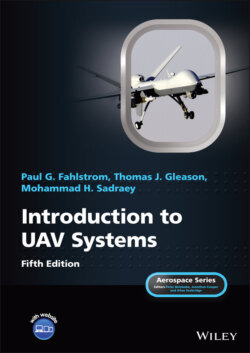Читать книгу Introduction to UAV Systems - Mohammad H. Sadraey - Страница 49
1.8 Ethical Concerns of UAVs
ОглавлениеAll engineering products share some ethical issues, but the ethical concerns in UAVs are new and not yet regulated. Like other engineering products, there are many ways that UAVs are utilized unlawfully or unethically (e.g., drug trafficking). There are basically two ethical issues in employing UAVs: (1) invasion of privacy and (2) killing innocent individuals (lethal use). For instance, between 2004 to 2010, the US drone program in Pakistan [3] has killed several hundred civilians accidentally.
There are many unanswered questions regarding these two major areas. There are much less ethical concerns regarding mechanical robots than UAVs. When a UAV is flying over houses and is collecting data, this is a case for ethical concern. Due to these concerns, when a user of an UAV does not feel accountability, he/she may trespass the privacy of other citizens and cause loss of life of other individuals.
According to the US government accountability office, there are still four areas of concern for UAVs in using airspace: (1) the inability to recognize and avoid other aircraft, (2) lack of operational standards, (3) vulnerability in command and control of UAV, and (4) lack of Government regulations necessary to safely facilitate the accelerated integration of UAVs into the national airspace system. Moreover, the utilization of unmanned aerial systems for military applications is currently a contested and debated issue.
Having a center in ethics‐informed interdisciplinary research and the integration of ethical literacy throughout the UAV curriculum is a valuable step toward removing ethical concerns. It is promising that AIAA has developed a code of ethics, and recommends all aeronautical engineers to observe these codes in designing and developing air vehicles.
There are concerns about the risks of flying the military UAVs outside war zones. There are reports that US UAVs have repeatedly crashed at civilian airports overseas throughout the world. Among the problems cited in the reports “are pilot error, mechanical failure, software bugs, and poor coordination with civilian air‐traffic controllers. Since an initial report of a crash in January of 2011 at a US base in Djibouti, there have been ‘at least six more Predators and Reapers’ crashes” in the vicinity of civilian airports overseas.
In 2021, the FAA announced [3] two final rules for unmanned aircraft, which will require Remote Identification (Remote ID) of drones and allow remote operators of small drones to fly over people and at night under certain conditions. This is a major step toward further integrating UAVs into the National Air Space.
A great many arguments challenge the ethical justifiability of remote weapons (UAVs) by US military. One of the questions is: Does it really matter if a human kills an enemy or if a machine (UAV) kills that enemy as long as the enemy is eliminated? The issues at stake in the “UAV ethics” discussions are complex. The authors are not ready to answer these types of questions, but we invite scholars to dive deep into this topic and help law makers to cast laws to resolve these concerns.
